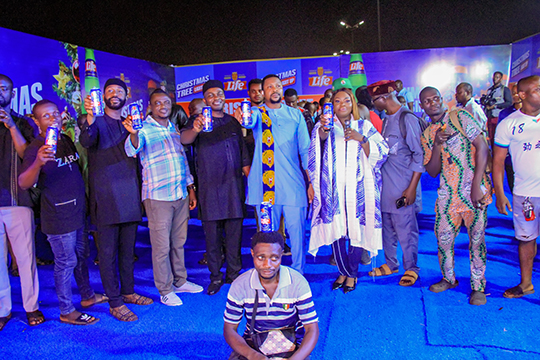
If there’s anything regrettable about the active African youth population, it’s the death of the reading culture. From pre-colonial moonlit folklore to Twitter Spaces, it’s evident that we are a society shaped by the arts. As a people, we’re enviably boisterous with stories, with our perspectives as witty as Nsibidi carvings and our experiences as raw as Griot melodies.
All over Africa, there are a plethora of wonders to discover, but sadly there’s only a handful of explorers showcasing the beauty of such a continent. One of such noteworthy voices is the flagship publication, Afrocritik, which has elevated the reading culture of African youths. With objective coverage and youthful approach , the magazine, founded just before the world took a pandemic-inspired pause, has become a hub for ethnographic storytelling on the best of contemporary indigenous arts.
“It fosters deeper relationships among Africans,” Samson Jikeme, Afrocritik’s co-founder tells Guardian. Together with his college pal, Owanate Max-Harry, they both bootstrapped the publication, writing bits on music, fashion, film, and written literature, with the same pan-African sentiment that distinguishes the magazine today.
In its usual end-of-year grandeur, the Afrocritik brand has published its widely-anticipated listicles on music and literature. This year, it’s “Top 25 Albums of 2023” celebrates the rich diversity and sonic excellence of African stars including Nigeria’s Crayon, South Africa’s Nkosazana Daughter, Uganda’s Azawi and Ghana’s Amaarae, toasting to the power of a united Africa, which has seen African music record more global successes this year. Its “33 Remarkable African Short Stories” and “15 Notable Essays in Nigeria” are similar archival pieces that are as uniquely detailed as the subjects they revolve around. “I can argue that this list exposes people to notable gems in other African countries,” Jikeme quips.
If anything is worth mentioning is the fact that these publishers are yoked beyond commercial gain, as the diaspora-based authors continue to run the platform despite the huge advertisement drought in the African literary space, and have, instead, tripled the momentum to create a more free-spirited and inclusive community of African readers.
For African readers and lovers of literature, the wells of this publication are low-hanging fruits of culture ripe for exploration. While a renaissance of paperback reading culture might still seem to be a dream for another day, Afrocritik is the sandman granting digital fantasias for bibliophiles of every generation. And the impact on the preservation of African culture remains immeasurable to society.






